What To Do After A Car Accident in Los Angeles, California
- Home
- What To Do After A Car Accident in Los Angeles, California
If you have just been involved in an automobile accident, you might not know what steps to do next. Of course, nobody ever wants to find themselves in such a situation. In addition, being involved in an automobile accident means more than simply getting to a safe location and seeking medical attention. Automobile collisions have repercussions for a person’s mental and physical health, as well as their finances and professional lives.
The following are the possible results of an automobile accident in the state of California:
- You sustained a significant injury and require the assistance of a lawyer for the filing of a claim for personal injury, or
- You are required to file a civil property damage action though you did not sustain any injuries.
As long as reckless and inattentive drivers exist, car accidents remain inevitable. There will also be drivers under the influence of alcohol as well as drivers who may not be familiar with the region and hence ignore traffic signs.
In addition to that, there is a startlingly high incidence of automobile accidents in the city of Los Angeles. However, despite how common they are, many individuals do not know what steps to take after being involved in a vehicle crash.
In the wake of a car crash in the state of California, what are the appropriate next steps to take?
It should not come as a surprise to learn that California’s roadways are among the most crowded in the entirety of the United States. Because of the presence of tourists traveling through the state on their way to other parts of the country, large commercial vehicles transporting goods both locally and to the opposite side of the country, and local residents going to or coming from work or running errands, it is possible for roads and highways to become extremely crowded. When a large number of vehicles attempt to use the same route, it is almost inevitable that there will be an increase in both traffic congestion and gridlock, as well as, most importantly, an increase in the number of automobile accidents, some of which will result in serious injuries or even fatalities.
Even in the case that no one is injured in the collision, dealing with the aftermath of the incident may be an ordeal that is fraught with anxiety and demands a lot of time.
It may be difficult to concentrate one’s attention on the future in the moments immediately following a collision, especially if the incident was severe. Despite this, the measures you take in the aftermath of a vehicle accident might make it simpler for you to collect the compensation you require to pay for the damages, medical expenses, and lost income you incurred as a result of the accident.
After being involved in a car crash, it is imperative that you do the following as soon as possible in order to ensure your safety:
Table of Contents
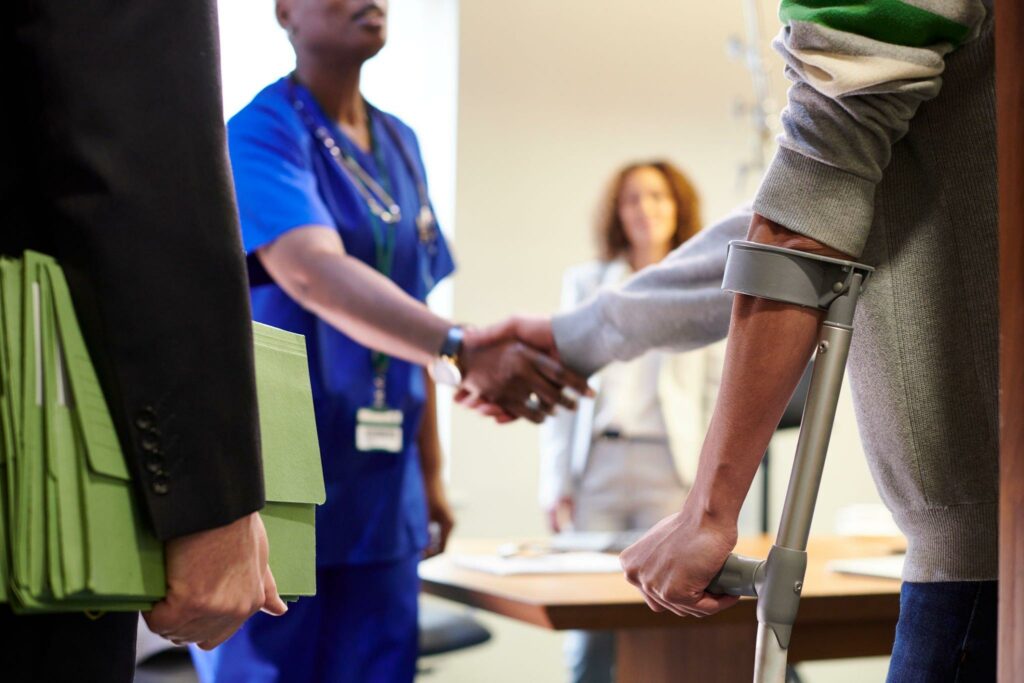
1. Get prompt medical attention.
Ensure that you and your passengers are secure before attempting to converse with the other driver, if possible. Call 911 immediately, even if it seems like nobody is wounded. Sometimes the symptoms of an injury don’t appear for a few days or weeks after it occurred, and other times they’re visible straight immediately.
As much as you can, take note of the following:
- The license plate of the other vehicle
- The total number of passengers in the automobile
- Possible witnesses
2. If no person has been hurt, make an effort to get off the road as quickly as you can.
Because other drivers may fail to see the accident and may be unable to yield or stop, many individuals are wounded when they are involved in automobile crashes. It is in your best interest to get away from the road as soon as possible if you are able to do so without inflicting further injury on yourself.
You should pull over to the side of the road if there is anything that needs to be settled with possible witnesses, or if you need to exchange information about insurance with other people who are involved in the collision.
3. Investigate the accident in order to get pertinent information about it.
First, if the other driver decides to leave the scene, you should write down their license plate information. After that, you may begin to focus on the following specifics: you should look for items like skid marks, smashed glass, and components of the vehicle, among other things.
These may prove to be essential pieces of evidence for the police as they investigate the situation. Take photographs of the area where the accident occurred if you can.
4. Communicate with the involved parties and provide any pertinent information, but avoid delving into more complicated topics amongst yourself.
Get the relevant information from the motorist who hit you by asking them about it. In the event that more than one vehicle is involved, you should inquire about the drivers of the other vehicles and get their contact information. Request information from them, including their names, addresses, phone numbers, insurance providers, and agents, as well as the policy number.
You should defer to your insurance providers to determine issues such as who was to blame and how much should be paid out in settlements rather than arguing about them between yourselves. If there is anything you would like to discuss with the other driver (or drivers), you should bring it up with the insurance company or with their attorneys.
5. Communicate with the authorities in charge.
Explain to them everything that took place during the vehicle accident. While the details of the accident are still fresh in your mind, you should write them down using this method. You run the risk of forgetting critical information in the future; thus, having them record all of it in a report is the most effective approach to save all of the data that you might want in the future for personal injury claims, insurance settlements, and other types of financial resolutions.
However, even if you think you are to blame, you shouldn’t admit it just yet. It is possible that upon the completion of the inquiry, you may learn that you were in no way responsible for the accident.
6. Take some pictures of the scene.
Take pictures of everything you can, including the accident site, your vehicle, any other damaged property, the road or intersection, road signs, road conditions, people who are traveling in other cars, and any other elements that may have contributed to the accident.
Your personal injury lawyer recognizes that conducting your own investigation and gathering more evidence is the most effective course of action, despite how much we would like to believe that investigations would be objective and complete.
7. Make a written record of whatever you can recall about the accident.
The resolution of several cases might take many weeks or even several months. In addition to that, there is a possibility that, at a later time, it will be difficult to remember the specifics. Therefore, as was suggested previously, jot down the particulars while they are still relatively fresh in your mind.
You might want to jot it down in a notepad or save it as a text file so that you can refer to it later. You need to be able to explain what goes on before, during, and after the collision. When you are chatting with your Los Angeles car accident lawyer, these notes will also help you readily recall the important timelines that you discussed. Your attorney will have an easier time conducting their investigations, locating evidence, and tracking down witnesses, as well as assisting you through the entirety of the process of filing a personal injury claim, if they have enough information about what transpired during the occurrence.
8. Obtain a copy of the report that was filed following the accident.
If the police or sheriff’s department arrives at the scene of the collision, a report detailing the incident will be made public. You are free to go to the police station and ask for a copy on your own time. After you have gotten the report, you should verify it thoroughly for any factual errors or omissions. In addition to that, a car accident lawyer in Los Angeles may also be able to assist you in obtaining this information for you.
9. Speak with a competent car accident attorney in Los Angeles who is licensed to practice law in the state of California.
As was just discussed, there are a lot of factors that make the situation more complicated in vehicle accidents. Not only have you just been in a situation that could have resulted in serious harm, but you also need to think about the costs of medical treatment, the time needed to recover emotionally, the money that will be paid out by insurance, the time lost at work, the wages that will be lost, the capacity to work that will be lost, and the possibility of developing permanent physical impairments.
These are challenging cases that call for an investment of both time and resources, as well as extensive conversation and negotiation with a large number of individuals and organizations. Therefore, do not be reluctant to get in touch with a local car accident lawyer as soon as possible.
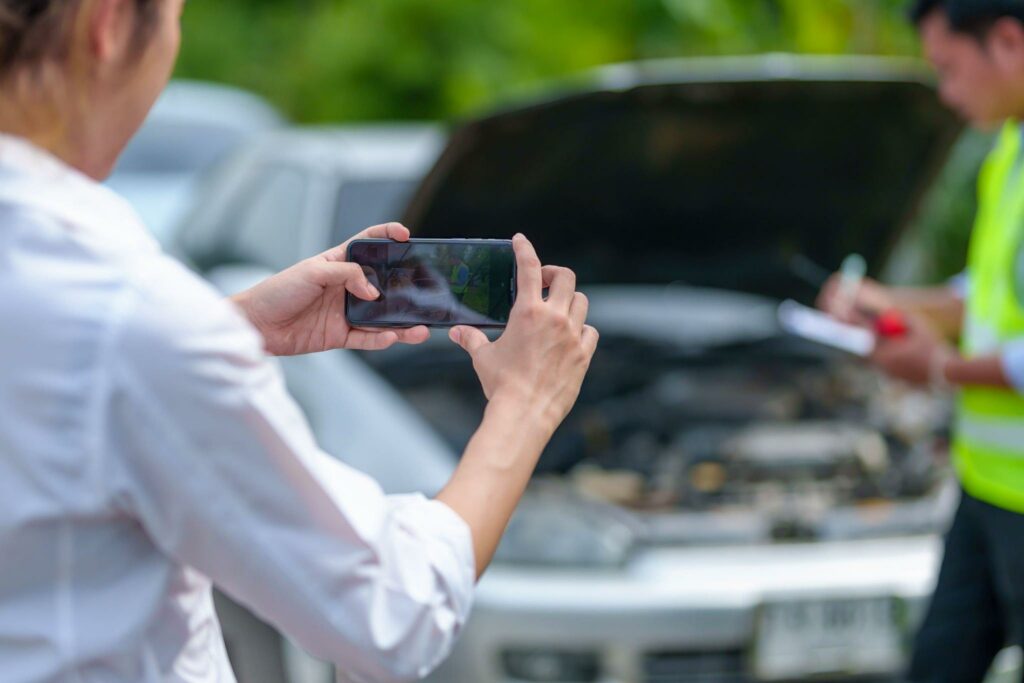
What Types Of Damages Am I Entitled To Claim If I Am Involved In A Car Accident In California?
If your personal injury claim in civil court is successful, you may be able to get monetary compensation for all of the losses that were brought about by the carelessness or other wrongdoings of the individual who was responsible.
These kinds of losses are referred to as “damages.”
In a personal injury claim, the sorts of damages that can be awarded are determined by the nature of the case, the extent of the plaintiff’s injuries, and the laws of the state in which the claim is filed. In the following list, we’ll take a look at some of the many different types of damages that might be awarded in a case involving personal injury:
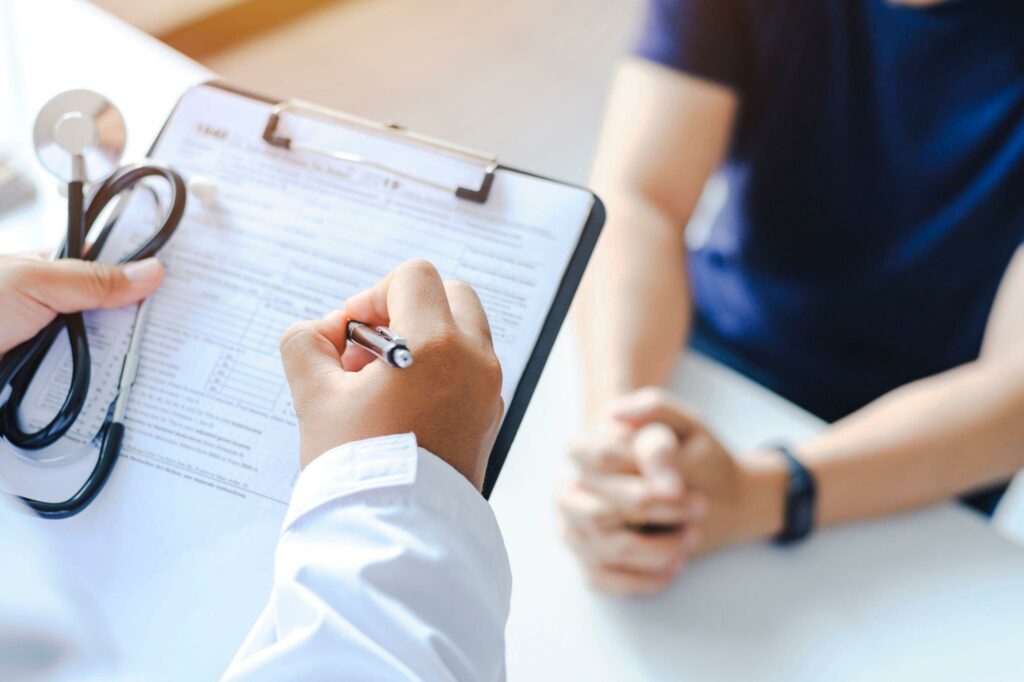
1. Medical Expenses
The plaintiff has the right to seek compensation from the defendant if they incur costs for testing or medical care as a result of an accident of any type, including trips to the ER, hospital stays, and physical therapy, and the defendant is responsible for covering such costs. If the plaintiff has insurance, it must be used by the defendant to address the claim.
Medical expenses in a personal injury case can rapidly build up to a sizeable sum of money, especially where there have been long-term injuries or permanent disability. Therefore, the cost of the care you have already got as well as the cost of the care you may need in the future may be included in the medical bills and medical treatment portion of your losses.
The plaintiff may be obligated to provide the plaintiff’s health insurer a percentage of the recovered damages if the insurer has been paying for accident-related medical expenditures prior to a personal injury settlement or court decision. This is something that has to be thought about. Take a closer look at the idea of medical liens while handling personal injury lawsuits.
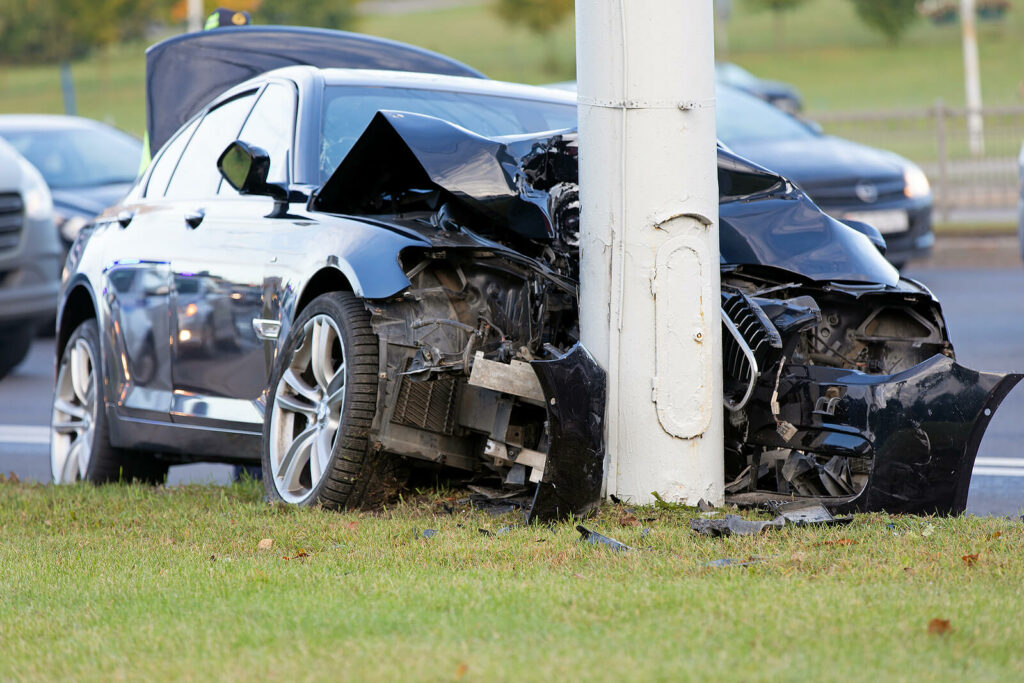
2. Lost Income
Another type of compensable damages is that which is awarded for lost wages or other forms of revenue. This includes compensation for any time during which a plaintiff was unable to work as a result of the accident or seek medical treatment for the injury. Even if a plaintiff has the legal right to take paid time off for vacation or illness, they should still be reimbursed for the time off work that they were denied (when they could be working).
If a plaintiff has lasting physical disabilities that prevent them from working or from maintaining a similar job in the future, a financial or economic expert can evaluate the plaintiff’s potential lost income and earning capability.
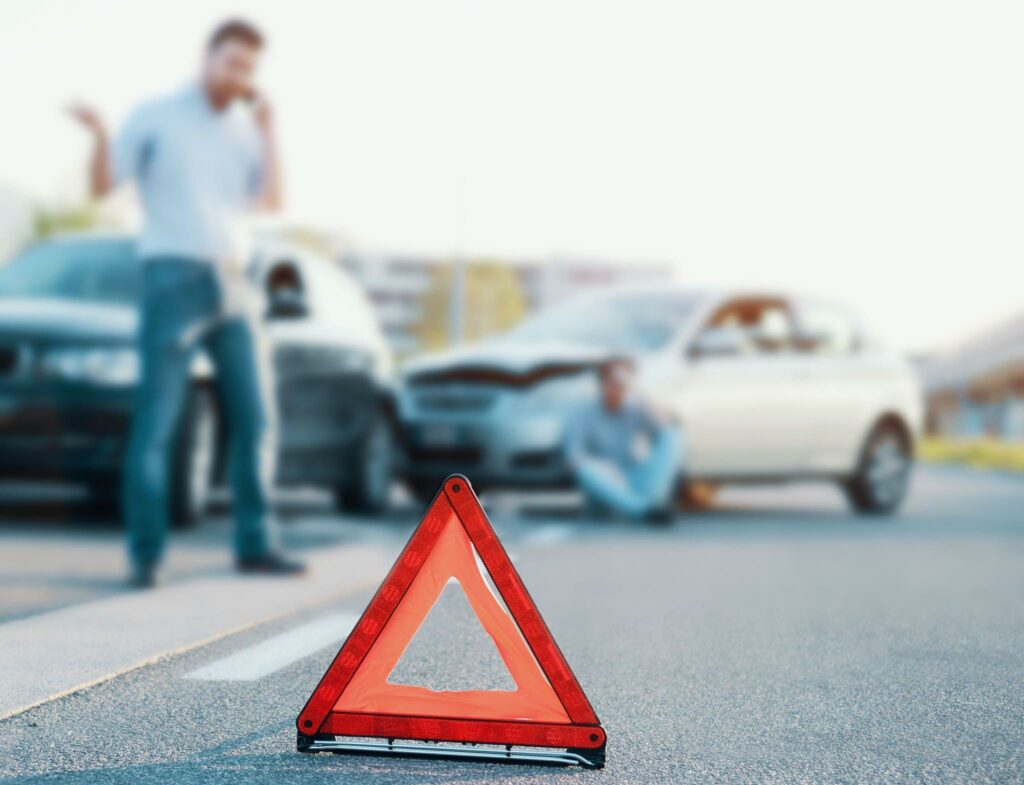
3. The Experience of "Pain and Suffering"
“Economic” damages are the easiest to quantify. Medical costs and missed wages are two instances of economic losses. If you keep all of your receipts and medical records, you and your lawyer ought to have no trouble obtaining the proof you want.
“Non-economic” losses make up the third important category of damages in a personal injury lawsuit. These may cover “pain and suffering” recompense for the victim as well as different types of emotional anguish.
The following are some of the most arbitrary; in order to be compensated for them, you need the best car accident attorneys in Los Angeles to demonstrate that the consequences of the collision and your injuries are similar to a certain monetary amount.
The following might be included in these damages for “Pain and Suffering”:
- mentally and psychologically taxing challenges
- the accident and the damage it left behind led to mental anguish, insomnia, anxiety, as well as various other psychological effects.
- a decline in one’s capacity to have joy in life
- the passing of a spouse or other loved one
If an accident or injury causes a person’s mental health to deteriorate, the plaintiff may be able to sue for emotional distress. On the other hand, documentation of these losses is often needed in the form of a mental health professional’s diagnosis or therapy.
What Should I Do If an Insurance Company Offers Me an Unfair Settlement Amount?
Most of the time, the insurance company only looks out for its own financial interests. However, this does not exclude you from contesting or appealing the settlement in any way.
However, we cannot stress enough how strongly we encourage you to refrain from engaging in these conversations on your own. Because insurance companies and brokers deal with these requests to review claims on a regular basis, they are well-versed in the art of persuading and winning over claimants.
Engaging the services of a California attorney for car accidents to act as a mediator during these discussions is sure to be profitable for you in the long run. There are situations when merely sending the defendant and their insurance providers a demand letter from your attorneys is enough to deter them from attempting to lowball you in their settlement offer.
In addition to this, attorneys have the ability to assist you in the following ways:
- They should do their own investigations in order to bolster your case.
- Represent your interests in insurance talks and settlements.
- Perform the necessary calculations to determine the economic and non-economic compensations that are rightfully yours to claim.
- Pay other people to handle things like law enforcement, witnesses, and insurance companies on your behalf.
- Collect the necessary papers and oversee the investigation.
- Write formal requests and send them to the right people.
- Convincingly argue and demonstrate why your preferred settlement offer should be accepted.
Important: You Have Measurable Losses
In situations when the automobile accident is caused by the negligent or reckless behavior of one or more other persons or entities, a California car accident lawsuit may be utilized to seek reimbursement for losses and expenses that have been incurred as a result of the accident.
Accidents involving motor vehicles are virtually invariably the result of one or more driving errors. It is possible for a person to make mistakes when they are not giving their activities the appropriate amount of attention and care. In some situations, the individual who causes the accident may be fully aware of what they are doing and the potential of a serious accident ensuing from the behaviors, yet they still choose to engage in them nevertheless. This is called a “choice accident.”
You may collect the monies you need to be financially whole with the help of a reliable and competent Los Angeles car accident lawyer.
Is There a Cap on the Amount of Money That Can Be Recovered?
The amount of money that can be awarded for economic damages is unrestricted. If you have appropriate documentation and evidence, you won’t encounter any issues using those in the state of California. On the other side, there may be limitations on how much non-economic harm you can seek in a lawsuit.
Legislation in the state of California has severely limited the ability of an accident victim to seek compensation for non-economic damages. To start, the following circumstances do not give a car accident victim the legal claim to non-economic damages:
- The victim was charged with DUI, or operating a vehicle while inebriated (driving with a blood alcohol content of 0.08 percent or above).
- At the time of the occurrence, the victim was driving their own car and lacked the minimum amount of liability insurance coverage needed by law.
- The victim was using a car that was not theirs, and they were unable to comply with California law’s requirements for evidence of financial responsibility (usually by having insurance or posting a required bond).
- Uninsured accident victims who were driving their own cars and were not at fault for the collision would be exempt from the law if the motorist who caused it was charged with drunk driving. A victim of a car accident who does not have insurance may occasionally be entitled to non-economic damages.
- If the injury happened while the victim was performing a criminal or had plans to escape to avoid punishment after committing a felony, the victim was not entitled to non-economic damages. This is accurate even if the crime that resulted in the injuries had nothing to do with the accident. This restriction only applies if the injured motorist has previously been convicted of a crime.
Is It Possible To Be Partially At-Fault in California?
In some cases involving claims of personal injury, the defendant could try to make the case that the plaintiff was at least partially to blame for the incident that gave rise to the claim. If you are found to be partially at fault, the total amount of compensation that you are entitled to collect from other parties who were at fault may be reduced as a result.
In cases of joint fault for an accident, the state of California applies a criterion known as “pure comparative negligence.” To put it another way, the percentage of responsibility that falls on your shoulders for the accident will directly correlate to the amount of money that can be deducted from the compensation to which you are entitled.
It is important to keep in mind that dealing with an insurance agent outside of the court system may be a different story, despite the fact that California courts are compelled to obey this regulation in personal injury litigation that gets to trial.
During the course of the negotiations for the settlement, the insurance agent may bring up California’s comparative negligence rule. Although this should not surprise you, you have the ability to negotiate how this rule should impact your claim.
Warning: Filing Personal Injury Lawsuits in California Must be Done Within Certain Time Limits
A statute of limitations can be found in every state. After being involved in an accident, you have this amount of time to file a claim for damages in a civil court. The deadlines for filing a claim under a statute of limitations might vary greatly depending on the nature of the case.
The statute of limitations for personal injuries in the state of California stipulates that a victim has two years from the date of the accident to file a case against persons who may be liable for the harm.
If you don’t file a personal injury lawsuit within this two-year timeframe, the court will definitely refuse to examine your case at any point in the future, and you will lose the right to compensation as a result. In other words, the statute of limitations for such claims is two years. It is conceivable that the deadline will be extended due to exceptional circumstances; nonetheless, you should avoid taking that chance if at all feasible.
When a Car Accident Leads to the Wrongful Death of Someone
A person has the right to file a wrongful death lawsuit in accordance with Section 377.60 of the California Code of Civil Procedure if they believe that the death of another person was the result of an unlawful act or negligent behavior.
This is a civil lawsuit, not a criminal one, and its purpose is to pay the estate of the deceased person and the beneficiaries for damages that they have suffered but which they would not have incurred if the deceased person had not died.
The decision of a lawsuit alleging wrongful death does not have any bearing on criminal proceedings. When compared to a criminal trial, this circumstance is wholly unique, and the burden of proof is far lower. Therefore, it is possible for a civil wrongful death claim to be successful even in the event that the offender is never charged with a crime or convicted of a crime.
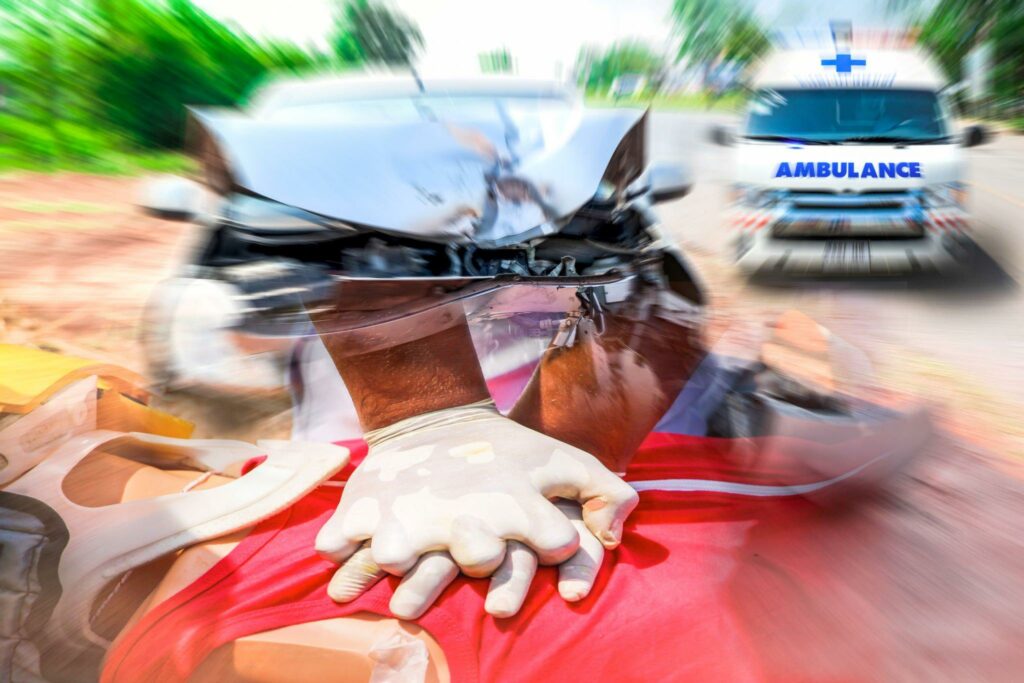
Who Is Able to Submit a Claim for Wrongful Death?
Although the death of a close friend, lover, or girlfriend can be a traumatic and distressing experience, the only people who have the ability to file a wrongful death claim are those who are related to the deceased person or who had a documented, legal relationship with the individual who passed away.
According to the statutes of the state of California, a claim for wrongful death can only be brought forward by the decedent’s surviving spouse, domestic partner, or children. In the event that none of the aforementioned conditions are met, a person’s surviving parents or siblings who, according to the rules of intestate succession, would be eligible to inherit the deceased person’s estate may file a claim for wrongful death.
In addition to the parties stated above, the personal representative of the deceased person, who is often designated in a person’s will, will also bring a lawsuit alleging that the deceased person was the victim of wrongful death. If you feel you have a case for wrongful death but are unsure as to whether or not you have the legal right to file a wrongful death lawsuit, a lawyer can evaluate your situation and provide you with helpful guidance.
Talk to the best Los Angeles car accident lawyers about your case!
Table of Contents
Cities We Serve in New Jersey
Newark, NJ
Jersey City, NJ
Elizabeth, NJ
East Orange, NJ
Linden, NJ
New Brunswick, NJ
Mount Laurel, NJ
Sayreville, NJ
West Orange, NJ
South Plainfield, NJ
Bergenfield, NJ
Cresskill, NJ
Demarest, NJ
Rochelle Park, NJ
Hackensack, NJ
East Orange, NJ
Fort Lee, NJ
Guttenberg, NJ
Harrison, NJ
Irvington, NJ
North Bergen, NJ
Palisades Park, NJ
Paramus, NJ
Paterson, NJ
Teaneck, NJ
Tenafly, NJ
Union City, NJ
West New York, NJ
